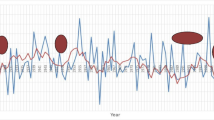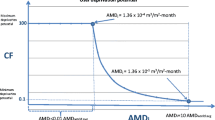Abstract
Fair processes and just outcomes are recognised globally as an important part of climate change adaptation and water resource management in particular. Achieving this is challenging, particularly in a developing country context where there is a myriad of pressing needs and conflicting ideas of what is needed across scales. This study takes a qualitative approach to exploring issues of justice and fairness in implementing water management technologies in low-income households. Water management devices (WMDs) are employed as part of the City of Cape Town’s water conservation and water demand management strategy. Through applying an environmental justice approach, this study shows that the WMDs have impacted on justice at the local level. The justice implications relate to the following: limited participation by households and a lack of procedural justice, distributional impacts and rights infringement, and the failure of the policy to fully recognise the diverse needs and vulnerabilities experienced by households. The perspectives of City officials and representatives of households with WMDs installed reveal that there is a mismatch between the City’s stated benefits of WMDs and the growing dissatisfaction of households with their devices. This dissatisfaction stems, in particular, from the inability of households to fulfil their needs with a limited water allocation, and personal convictions that water access is and should remain their unrestricted right. This research suggests that for water resource management and adaptation measures to be effective at the local and city scale, policies will require the inclusion of local communities’ understandings and experiences in order to uphold principles of social justice.
Similar content being viewed by others
Notes
The term City is used in the paper to refer to the City of Cape Town municipality.
Indigent grant criteria: property value R199 000 and total household monthly income R2880 or less (CCT 2008).
Non-revenue water refers to the water that is produced and remains unaccounted for. This is due to leakages in the transmission or unbilled, unauthorised consumption of water.
Calculated for a household of eight.
In comparison, city-wide, as of mid-2015, around 140,000 WMDs had been installed (EMG 2016).
Translated from the Xhosa Language means: “Let us help one another”.
Pseudonyms are used for the participants in this study.
According to the CCT official, the homeowner must be 18 years or older, preferably the person on title deed, but it can be another resident living at the property (Jacobson 10/06/14)
A vernacular word for townships.
A term given to a community plumber, who may have professional or self-taught expertise in this field.
References
Ahmed, S. N. & Islam, A. (2013). Equity and justice issues for climate change adaptation issues in water resource sector. In Climate change adaptation in Bangladesh. Shaw, R. Et al, Eds. Japan: Springer, 143–1.
ALHDC (Affordable Land & Housing Data Centre). (2012). Suburb profiles, Dunoon. http://www.alhdc.org.za/static_content/?p=48. Accessed 2 October 2014.
Aylett, A. (2010). Participatory planning, justice, and climate change in Durban, South Africa. Journal of Environment and Planning, 42(1), 99–15.
Bond, P. (2005). Reclaiming water pricing for participatory public services. http://www.waterjustice.org/uploads/attachments/pdf68.pdf Accessed 22 April 2014.
Bryant, B. (2003). History and issues of the environmental justice movement. Our backyard, a quest for environmental justice. In G. R. Visgilio & D. M. Whitelaw (Eds.), Our backyard: a quest for environmental justice. Rowman & Littlefield.
Bulkeley, H., Edwards, G. A. S., & Fuller, S. (2014). Contesting climate justice in the city: examining politics and practice in urban climate change experiments. Global Environmental Change, 25(1), 31–40.
CCT (City of Cape Town). (2007). Long term water conservation and water demand management strategy. https://www.capetown.gov.za/en/Water/Documents/MainDocument.pdf. Accessed 4 March 2014.
CCT (City of Cape Town). (2008). Indigent grant. https://www.capetown.gov.za/en/Pages/Indigentpolicy.aspx. Accessed 13 August 2014.
CCT (City of Cape Town). (2009). Constitution of the Republic of South Africa, No 108 of 1996. 1996. http://www.westerncape.gov.za/legislation/constitution-republic-south-africa. Accessed 22 September 2014.
Chowdhury, A. K. M. J. U., & Rasul, G. (2011). Equity and social justice in water resource governance: the case of Bangladesh’. South Asian Water Studies, 2(2), 44–58.
Chu, E., Anguelovski, I., & Carmin, J. (2016). Inclusive approaches to urban climate adaptation planning and implementation in the global south. Climate Policy, 16(3), 372–392.
Constitution of the Republic of SA, Act 108 of 1996. Government Gazette. No. 17678. 18 December 1996.
Dobson, A. (1998). Justice and the environment: conceptions of environmental sustainability and dimensions of social justice. Oxford: Oxford University Press.
DWAF (Department of Water Affairs and Forestry). (2002). Free basic water implementation guidelines for local authorities, Version 2.3, Department of Water Affairs and Forestry, Pretoria.
EMG (Environmental Monitoring Group). (2016). Water management devices: facts and perspectives. http://www.emg.org.za/images/downloads/water_cl_ch/FactSheetWMD.pdf. Accessed 1 May 2016.
Ernstson, H., van der Leeuw S. E., Redman C. L., Meffert D. J., Davis G. P., Alfsen C., & Elmqvist T. (2010). Urban transitions: on urban resilience and human-dominated ecosystems. Ambio, 39(8), 531–545.
Fraser, N. (1995). From redistribution to recognition? Dilemmas of justice in a post socialist age. New left review, 68–68.
Fraser, N. (2009). Social justice in the age of identity politics. Geographic thought: a praxis perspective, 72–91.
FBW (Free Basic Water). (2002). Free basic water. http://www.dwaf.gov.za/Documents/FBW/FBW ImplementStrategyAug2002.pdf. Accessed 2 September 2014.
Francis, R. (2005). Water justice in South Africa: natural resources policy at the intersection of human rights, economics, and political power. Georgetown International Environmental Law Review, 18, 149.
Funke, N., Nortje, K., Findlater, K., Burns, M., Turton, A., Weaver, A., & Hattingh, H. (2007). Redressing inequality: South Africa’s new water policy. Journal of Environment: Science and Policy for Sustainable Development, 49(3), 10–23.
Harvey, D. (1996). Justice, nature, and the geography of difference. Oxford: Blackwell.
Hughes, S. (2013). Justice in urban climate change adaptation: criteria and application to Delhi. Ecology and Society, 18(4), 48.
IWMI (International Water Management Institute). (2007). Water for food, water for life. A comprehensive assessment of water management in agriculture. http://iwmi.org/assessment/files_new/synthesis/Summary_SynthesisBook.pdf [2014. Accessed 15 September 2015.
Kates, R. W. (2000). Cautionary tales: adaptation and the global poor. In Societal adaptation to climate variability and change (pp. 5–17). Netherlands: Springer.
Koldeweij, C. (2013). Meeting developing country cities’ water needs under greater uncertainty—the integration of climate change impacts into water supply and services planning for cape town. MA Thesis: University of Oxford.
Martin, A., Akol, A., & Gross-Camp (2015). Towards a specific justice framing of the social impacts of conservation. Journal of Conservation and Society, 13(2), 166.
Meyer, N., Wright, D. & Engelbrecht, M. (2009). Large scale pressure management in the city of Cape Town. Proceedings of the conference “Water Loss – (IWA) International Water Association”. 26–30 April 2009. www.miya-water.com . Accessed 12 June 2014.
Montanda, L. (2012). The normative impact of empirical justice research (pp. 3–19). Berlin: Springer.
Morgan, D. (2008). Snowball sampling. The SAGE encyclopedia of qualitative research methods. 1st edition. Thousand Oaks, CA: SAGE publications, 816–817.
Munnik, V. (2007). Solidarity for environmental justice in Southern Africa. A report for Groundworks. http://www.groundwork.org.za/Publications/Solidarity% 20for%20EJ% 20in%20SA. Accessed 10 January 2016
Mukheibir, P. (2007). Access to water—the impact of climate change in small municipalities. ERC, University of Cape Town.
Mukheibir, P., & Ziervogel, G. (2007). Developing a municipal adaptation plan (MAP) for climate change: the city of Cape Town. Journal of Environment and Urbanization, 19(1), 143–158.
Mukheibir, P., Kuruppu, N., Gero, A., & Herriman, J. (2013). Overcoming cross-scale challenges to climate change adaptation for local government: a focus on Australia. Climatic Change, 121(2), 271–283.
Muller, M. (2008). Free basic water—a sustainable instrument for a sustainable future in South Africa. Environment and urbanization. International Institute for Environment and Development, 20(1), 67–87.
Muller, M. (2016). Urban water security in Africa: the face of climate and development challenges. Development Southern Africa, 33(1), 67–80.
National Water, Act 36 of 1998. Government Gazette. No. 19182. 28 August 1998.
Pahl-Wostl, C. (2007). A conceptual framework for analysing adaptive capacity and multi-level learning processes in resource governance regimes: global environmental change. Elsevier, 19, 354–365.
Paavola, J. & Adger, W. N. (2002). Justice and adaptation to climate change. Tyndall Centre Working Paper, 23.
Pereira, T. (2009). Household impacts of water management devices, summary of initial research. Proceedings of the seminar “EMG Water and Climate Change”. 26 November 2009. http://www.emg.org.za/images/downloads/water_cl_ch/wmd%20impacts%20on%20hhs%20for%20website.pdf. Accessed 9 September 2014.
SAHRC (South African Human Rights Commission). (2014). Report on the right to access sufficient water and decent sanitation in South Africa: 2014. http://www.sahrc.org.za/home/21/files/FINAL%204th%20Proof%204%20March%20-%20Water%20%20Sanitation%20low%20res%20(2).pdf. Accessed 1 October 2014.
Saldaña, J. (2015). The coding manual for qualitative researchers (3rd ed.). London: SAGE.
Sen, A. (2009). The idea of justice. London, UK: Penguin Group.
Scholsberg, D. (2004). Reconceiving environmental justice: global movements and political theories. Journal of Environmental Politics, 13(3), 517–540.
Schloseberg, D. (2013). Theorising environmental justice: the expanding sphere of a discourse. Journal of Environmental Politics, 22(1), 37–55.
Smith, L., & Hanson, S. (2003). Access to water for the urban poor in cape town: where equity meets cost recovery. Urban Studies, 40(8), 1517–1548.
Smith, L. (2004). The murky waters of the second wave of neoliberalism: corporatization as a service delivery model in cape town. Geoforum, 35(3), 375–393.
StatsSA. (2011). City of Cape Town Census Suburb – Dunoon. http://www.capetown.gov.za/en/stats/2011CensusSuburbs/2011_Census_CT_Suburb_Dunoon_Profile.pdfhttp://www.capetown.gov.za/en/stats/2011CensusSuburbs/2011_Census_CT_Suburb_Dunoon_Profile.pdf Accessed 13 August 2014.
Steele, W., Mata, L., & Fünfgeld, H. (2015). Urban climate justice: creating sustainable pathways for humans and other species. Current Opinion in Environmental Sustainability, 14, 121–126.
Sutherland, C., Scott, D., & Hordijk, M. (2015). Urban water governance for more inclusive development: a reflection on the ‘waterscapes’ of Durban, South Africa. European Journal of Development Research, 27(4), 488–504.
Syme, G. E., & Nancarrow, B. E. (1997). The determinants of perceptions of fairness in the allocation of water to multiple uses. Water Resources Research, 33(9), 2143–2145.
Thomas, D. S., & Twyman, C. (2005). Equity and justice in climate change adaptation amongst natural-resource-dependent societies. Global Environmental Change., 15(2), 115–124.
Thompson, L., Masiya, T. & De Wet, P. T. (2013). User perceptions and levels of satisfaction of water management devices in Cape Town and Ethekwini. Water Research Commission. No. 2089/1/13.
Tornblom, K., & Vermunt, R. (2007). Introduction to procedural and distributive justice. In distributive and procedural justice: research and social applications. London, UK: Ashgate Publishing Ltd..
UN. United Nations (2014). Human right to water. http://www.un.org/waterforlifedecade/human_right_to_water.shtml. Accessed 19 October 2014
Walker, G. (2009). Globalizing environmental justice. The geography and politics of frame contextualization and evolution. Global Social Policy, 9(3), 355–382.
Water Services, Act 108 of 1997. Government Gazette. No. 18522. 19 DECEMBER 1997.
WCWDM Strategy (2007). City of Cape Town, long term water conservation and water demand management. https://www.capetown.gov.za/en/Water/WaterservicesDevPlan/Documents/WSDP_2012_2013/Topic8_WCWDM_STRATEGY_2.pdf. Accessed 2 October 2014.
WHO. World Health Organisation. (2014). What is minimum quantity of water needed?
Wilson, J. & Pereira, T. (2012). Water Demand Management’s Shadow Side: tackling inequality and scarcity of water provision in Cape Town. Proceedings of the conference “Strategies to Overcome Poverty and Inequality Conference. Towards Carnegie III”. 3–7 September 2012. University of Cape Town.
Wise, R.M., I. Fazey, M. Stafford Smith, S.E. Park, H.C. Eakin, E.R.M. Archer Van Garderen, and B. Campbell. (2014). Reconceptualising adaptation to climate change as part of pathways of change and response. Global Environmental Change, January. Elsevier Ltd, doi: 10.1016/j/gloenvcha.2013.12.2002
Ziervogel, G., Moliehl, S., & Minlei, D. (2010). Climate change adaptation in a developing country: the case of urban water supply in Cape Town. Climate and Development, 2(2), 94–110.
Acknowledgements
This paper was developed from my Honours research at the Department of Environmental Geographical Sciences, University of Cape Town. I am grateful for the support of my supervisors, Dr. Gina Ziervogel and Dr. Dianne Scott, who continue to offer me their guidance during my academic journey. This research was financially supported by the National Research Foundation and the University of Cape Town.
Author information
Authors and Affiliations
Corresponding author
Rights and permissions
About this article
Cite this article
Mahlanza, L., Ziervogel, G. & Scott, D. Water, Rights and Poverty: an Environmental Justice Approach to Analysing Water Management Devices in Cape Town. Urban Forum 27, 363–382 (2016). https://doi.org/10.1007/s12132-016-9296-6
Published:
Issue Date:
DOI: https://doi.org/10.1007/s12132-016-9296-6




